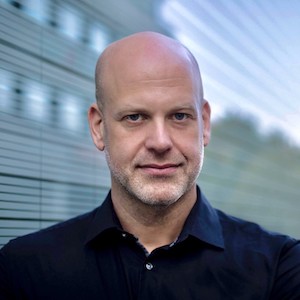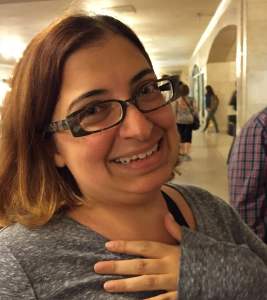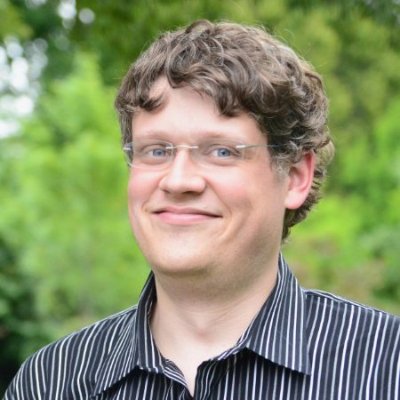 The Free Software Foundation (FSF) started promoting the idea of sharing code way back in 1985, and since then it's defended the rights of computer users and developers. The FSF says that the terms "open" and "closed" are not effective words when classifying software, and instead considers programs either freedom-respecting ("free" or "libre") or freedom-trampling ("non-free" or "proprietary"). Whatever terminology you use, the imperative is that computers must belong, part and parcel, to the users, and not to the corporations that owns the software the computers run. This is why the GNU Project, and the Linux kernel, Freedesktop.org, and so many other open source projects are so important.
The Free Software Foundation (FSF) started promoting the idea of sharing code way back in 1985, and since then it's defended the rights of computer users and developers. The FSF says that the terms "open" and "closed" are not effective words when classifying software, and instead considers programs either freedom-respecting ("free" or "libre") or freedom-trampling ("non-free" or "proprietary"). Whatever terminology you use, the imperative is that computers must belong, part and parcel, to the users, and not to the corporations that owns the software the computers run. This is why the GNU Project, and the Linux kernel, Freedesktop.org, and so many other open source projects are so important.
free software
See the following -
'Open Source' Is Not 'Free Software'
 In the open source universe, using terms such as FLOSS (Free/Libre and Open Source Software) is common and represents a casual conflation of the terms open source and free software, which are often used interchangeably. I would be remiss if I didn't also admit that I have been guilty of same. I won't be doing that anymore—or at least I'll try not to—for a simple reason: Using the terms interchangeably is dangerous to the goals of free software and open media advocates (read "anti-DRM"). To continue this practice is to undermine beliefs that are fundamental to free software and associated movement...
In the open source universe, using terms such as FLOSS (Free/Libre and Open Source Software) is common and represents a casual conflation of the terms open source and free software, which are often used interchangeably. I would be remiss if I didn't also admit that I have been guilty of same. I won't be doing that anymore—or at least I'll try not to—for a simple reason: Using the terms interchangeably is dangerous to the goals of free software and open media advocates (read "anti-DRM"). To continue this practice is to undermine beliefs that are fundamental to free software and associated movement...
- Login to post comments
6 remarkable features of the new United Nations open source initiative
 The United Nations wants to make technology, software, and intellectual property available to everyone, including developing countries. Open source and free software are great tools to achieve this goal since open source is all about empowering people and global collaboration while protecting the personal data and privacy of users. So, the United Nations and the open source community share the same values. This new open source strategy and policy is developed by the United Nations Technology Innovation Labs (UNTIL). Last month, we had our first in-person meeting in Helsinki in the UNTIL offices. I find this initiative remarkable for several reasons:
The United Nations wants to make technology, software, and intellectual property available to everyone, including developing countries. Open source and free software are great tools to achieve this goal since open source is all about empowering people and global collaboration while protecting the personal data and privacy of users. So, the United Nations and the open source community share the same values. This new open source strategy and policy is developed by the United Nations Technology Innovation Labs (UNTIL). Last month, we had our first in-person meeting in Helsinki in the UNTIL offices. I find this initiative remarkable for several reasons:
- Login to post comments
A Primer on the Open Source Movement from a Health Care Perspective
 Open source, in myriad forms, has emerged as a significant development model that drives both innovation and technological dispersion. Ignore it at your peril, as did the major computer companies destroyed or totally remade by Linux and free software, or encyclopedia publishers by Wikipedia, or journalists and marketers by social media. The term "open source" was associated first with free software, but it goes far beyond software now. People around the world use open hardware, demand open government, share open data, and--yes--pursue open health. The field of health, in particular, will be transformed by open source principles in software, in research, in consultations and telemedicine, and in the various forms of data sharing all these processes call for.
Open source, in myriad forms, has emerged as a significant development model that drives both innovation and technological dispersion. Ignore it at your peril, as did the major computer companies destroyed or totally remade by Linux and free software, or encyclopedia publishers by Wikipedia, or journalists and marketers by social media. The term "open source" was associated first with free software, but it goes far beyond software now. People around the world use open hardware, demand open government, share open data, and--yes--pursue open health. The field of health, in particular, will be transformed by open source principles in software, in research, in consultations and telemedicine, and in the various forms of data sharing all these processes call for.
- Login to post comments
Data Exchange Vendor Metriport Adopts Open Source
 Metriport is addressing a problem similar to other IT companies in health care—a service to ingest and clean patient data for tasks such as providing care summaries during a patient transition—but is doing so in a very unusual way: through an entirely open source service. Because the choice to go open source is so central to their business model, I will discuss the importance of free and open source software in health care, then explain Metriport's service.
Metriport is addressing a problem similar to other IT companies in health care—a service to ingest and clean patient data for tasks such as providing care summaries during a patient transition—but is doing so in a very unusual way: through an entirely open source service. Because the choice to go open source is so central to their business model, I will discuss the importance of free and open source software in health care, then explain Metriport's service.
- Login to post comments
Interview With Free Software Foundation Executive Director Zoë Kooyman
- Login to post comments
Linux 2017: With Great Power Comes Great Responsibility
 In 2016, Linux turned 25. When it began, it was a student project. Today, Linux runs everything. From smartphones to supercomputers to web servers to clouds to the car, it's all Linux, all the time. Even the one exception, the end-user, is moving to Linux. Android is now the most popular end-user opearating system. In addition, Chromebooks are becoming more popular. Indeed, even traditional Linux desktops such as Fedora, openSUSE, Mint, and Ubuntu are finally gaining traction. Heck, my TechRepublic Linux buddy Jack Wallen even predicts that "Linux [desktop] market share will finally breach the 5-percent mark"...
In 2016, Linux turned 25. When it began, it was a student project. Today, Linux runs everything. From smartphones to supercomputers to web servers to clouds to the car, it's all Linux, all the time. Even the one exception, the end-user, is moving to Linux. Android is now the most popular end-user opearating system. In addition, Chromebooks are becoming more popular. Indeed, even traditional Linux desktops such as Fedora, openSUSE, Mint, and Ubuntu are finally gaining traction. Heck, my TechRepublic Linux buddy Jack Wallen even predicts that "Linux [desktop] market share will finally breach the 5-percent mark"...
- Login to post comments
O'Reilly Report Explores Open Solutions to Health IT
Although many programmers and public interest advocates come to the concepts of free software, standards, open data, and transparent institutions out of idealism, modern businesses and governments are being driven to these same solutions out of the practical need to meet high expectations with diminishing resources. The ways in which the health care field has been incrementally adopting these paths are the subject of a new report, written by me and released by O'Reilly Media, called The Information Technology Fix for Health: Barriers and Pathways to the Use of Information Technology for Better Health Care. Read More »
- Login to post comments
Open for Business: The reputation economy of open source—do you take the egg roll?
Open source software has been referred to as a "gift economy," one where valuable goods and services are exchanged without the expectation of payment. That’s fine, so far as it goes, but when it comes to businesses involved with open source software, I think the term "reputation economy” is more accurate... Read More »
- Login to post comments
Promoting Open Source Software Government: The Challenges of Motivation and Follow-Through
The Journal of Information Technology & Politics has just published a special issue on open source software. My article "Promoting Open Source Software in Government: The Challenges of Motivation and Follow-Through" appears in this issue, and the publisher has given me permission to put a prepublication draft online. Read More »
- Login to post comments
Should the DoD Buy Epic, or Cerner, or GE, or...?
After a lengthy foray into building its own EHR from scratch (AHLTA) [...] and another shorter detour through the fantasy land of an open-source integrated EHR (iEHR) [...], the DoD announced that it will begin looking for a commercially available product to suit the DoD’s unique needs. Read More »
- Login to post comments
The New Open Source: Money, Corporations, and Identity
 Danese Cooper, head of open source for PayPal, spoke to during the Day 2 OSCON morning keynotes about the sustainability of open source, mixing in some of the history of open source as well as her own sage advice. She started on a high note. We have won! But this comes with some interesting challenges. We now have a whole new wave of people coming in to participate, but they are not "battle tested," as she calls it. The group of people that have gone before, who have seen open source start, falter, struggle, and finally win, have passion for open source. Many newcomers do as well but they are also more intent on the money in open source...
Danese Cooper, head of open source for PayPal, spoke to during the Day 2 OSCON morning keynotes about the sustainability of open source, mixing in some of the history of open source as well as her own sage advice. She started on a high note. We have won! But this comes with some interesting challenges. We now have a whole new wave of people coming in to participate, but they are not "battle tested," as she calls it. The group of people that have gone before, who have seen open source start, falter, struggle, and finally win, have passion for open source. Many newcomers do as well but they are also more intent on the money in open source...
- Login to post comments
Top Open Innovations in 3D Printing
 Open source continues to drive rapid innovation in the 3D printing industry. This makes sense if you stop and think about it—a 3D printer exists to make other things. Combining that philosophy with free software and open source hardware helps other people participate in improving the objects that it makes, and in making the printers faster, smarter, and cleaner. Here are a few of my favorite open source 3D printing innovations from 2016...
Open source continues to drive rapid innovation in the 3D printing industry. This makes sense if you stop and think about it—a 3D printer exists to make other things. Combining that philosophy with free software and open source hardware helps other people participate in improving the objects that it makes, and in making the printers faster, smarter, and cleaner. Here are a few of my favorite open source 3D printing innovations from 2016...
- Login to post comments
GHCon2023
GHCon is an annual conference that brings together enthusiasts and developers of the Free/Libre Health & Hospital Information System. During the 2-day conference, you’ll have the opportunity to attend the different thematic sessions and free workshops and share experiences and implementation cases and, of course, network with GNU Health community members from around the world!
Day 1 is registration day and IWEEE, the International Workshop on eHealth in Emerging economies. IWEEE is about Social Medicine, a space to give voice to the voiceless, share the experiences from different organizations around the World, and try to find ways to improve the lives of the underprivileged.
Day 2 is dedicated exclusively to GNU Health. In the thematic talks, we will discuss topics such as the upcoming features, standards, security, mobile applications, and implementation cases. At GNU Solidario, we will be honored to have you among us. We are counting on your active participation to get the most out of the conference. Most importantly, we want you to have fun, feel at home, and enjoy being part of the GNU Health community!

- Login to post comments